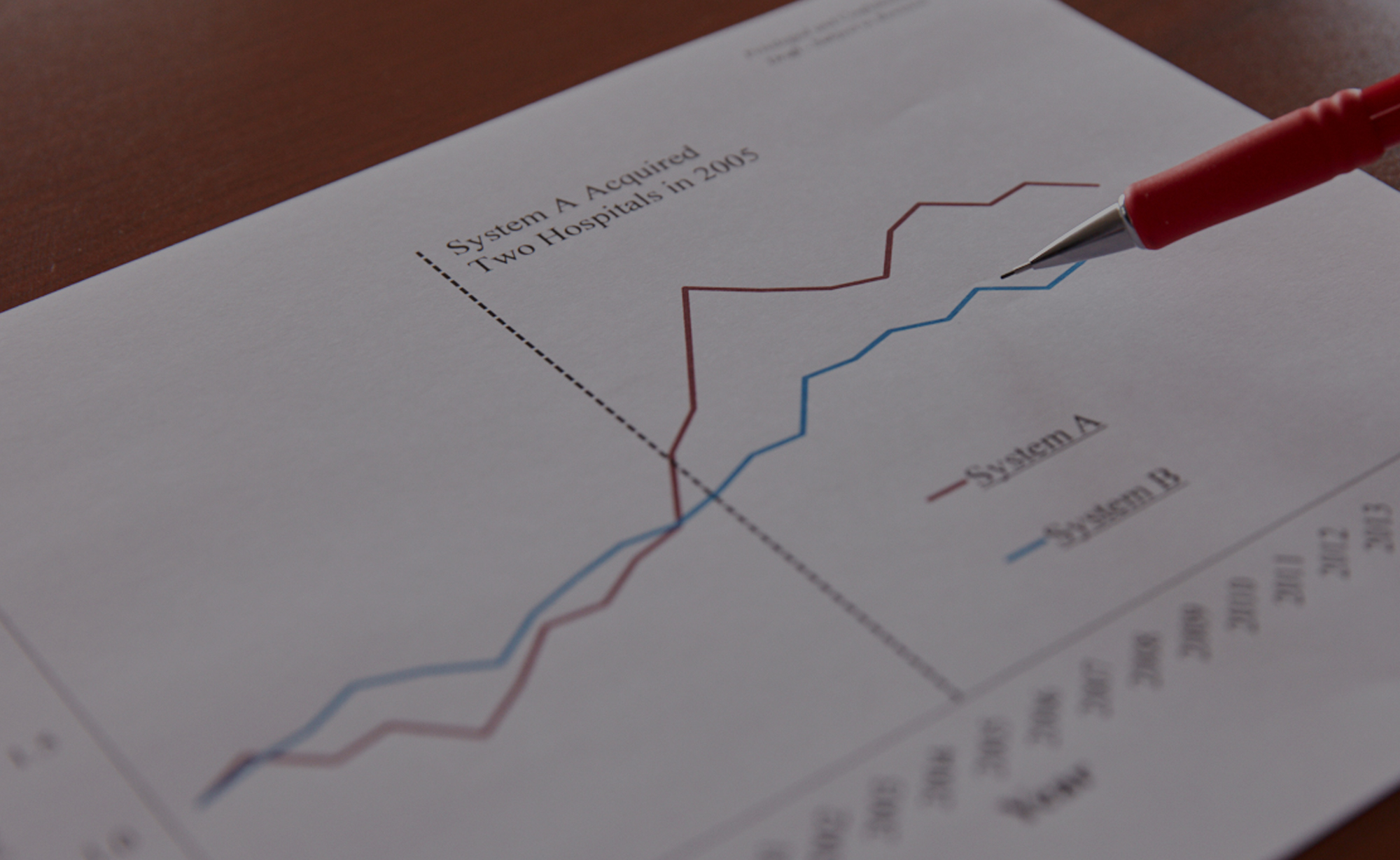Your trusted advisor on economics
WE SPECIALIZE IN ADVERSARIAL PROCEEDINGS, BOTH DOMESTIC AND INTERNATIONAL.
WHAT WE DO
Here are a few ways we help our clients:
MERGERS
Pre-Filing
We analyze the competitive landscape and identify potential regulatory risks.
First 30 Days
We develop analyses that help decision-makers understand the relevant economic issues.
Second Request
We develop deeper insights grounded in rigorous economic analyses.
Meetings with Regulators
We help educate regulators by presenting analyses to key decisionmakers.
Remedies
If necessary, we help identify and assess potential remedies, including divestitures.
LITIGATION
Pre-Complaint
We think through the economics of alleged wrong doing and ground complaints in rigorous economics.
Fact Discovery
We identify key data, documents, and deposition testimony that are integral to analyzing the competitive effects of the alleged conduct.
Expert Discovery
We develop economic analyses that examine relevant theories of harm and expose the flaws in opposing experts’ opinions.
Settlement Negotiations
We help assess whether a dispute is best resolved by litigation and analyze settlement scenarios.
Trial
We help guide the trier of fact to conclusions supported by valid economic evidence.
CASE EXPERIENCE
Experts at Matrix Economics have analyzed a broad array of industries such as: airlines, electricity, healthcare, media, packaged goods, pharmaceuticals, semiconductors, and telecommunications. Examples of casework involving Matrix Economics are described below:

CenturyLink-Level 3 Merger
Dr. Chipty led multiple teams, including a team at Matrix Economics, to evaluate the competitive landscape for business data services, on behalf of the parties before the U.S. Department of Justice and Federal Communications Commission. The analysis involved assessing the overlap in the parties’ assets in several metropolitan areas and the likely response of rivals to the putative merger.
The deal cleared federal merger review in October 2017.
MOL, K-Line, and NYK Line Joint Venture
Dr. Chipty and her team analyzed the competitive effects of the formation of a joint venture between three Japanese shipping companies, on behalf of the parties. The assignment involved analyzing competition along the supply chain for transporting refrigerated produce between the U.S. and Japan. Dr. Chipty presented these findings before the U.S. Department of Justice in the summer of 2017.
The transaction was permitted to close in the U.S. without any conditions attached.
U.S., et al. v. Hillsdale Community Health Center, et al.
Dr. Chipty was the government’s antitrust expert in a lawsuit alleging that two hospitals conspired to allocate customers. Her work focused on the economics of collusion and the role of marketing in patients’ choices of hospital. In addition, she analyzed the overlap of services offered by the hospitals and conducted a diversion analysis to assess whether the Defendants were competitors.
The dispute settled in February 2018 with the Defendants agreeing not to engage in the challenged conduct.
Disney’s Acquisition of FOX Assets
Dr. Booth led a team at Matrix Economics to support an academic economist in evaluating the competitive implications of Disney’s proposed acquisition of FOX’s regional sports networks and other programming assets. The work was presented to the U.S. Department of Justice and undertaken on behalf of the American Cable Association.
In June 2018, the DOJ required Disney to divest FOX’s regional sports networks as a condition of the transaction.
U.S. et al. v. Carolinas Healthcare System
Dr. Chipty was the government’s antitrust expert in its lawsuit against Carolinas Healthcare System that challenged the steering restrictions CHS imposed on health insurers. Her assignment included defining hospital markets, assessing market power, and evaluating the competitive effect of the challenged conduct.
The dispute settled in April 2019 with CHS agreeing to cease the challenged conduct.
FTC v. Qualcomm and Apple v. Qualcomm
Dr. Chipty was one of Qualcomm’s antitrust experts in lawsuits challenging Qualcomm’s licensing practices and use of customer incentive agreements that reference rivals. She and the Matrix team studied issues of market definition, market power, and raising rivals costs—accounting for technological innovation in the dynamic modem chipset marketplace. Consistent with Dr. Chipty’s testimony, the DOJ filed a Statement of Interest expressing the need to factor in the role of innovation in assessing harm.
The District Court ruled in favor of the FTC, in FTC v. Qualcomm, and that case is currently under appeal to the 9th Circuit. The parties settled the Apple-Qualcomm dispute. As part of the settlement, Apple agreed to pay Qualcomm an undisclosed amount.



